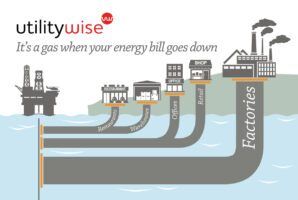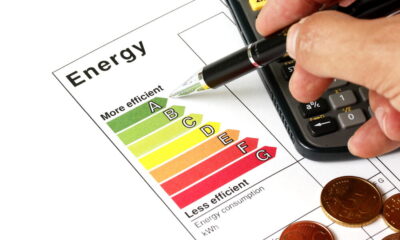

Energy
It’s a gas when your energy bill goes down
It’s difficult to get a grip on your gas bill when your business is squeezed between the twin pressures of high consumption and price volatility. So if your company is a big gas consumer, how can you make savings on this year’s bill?
First, you need to understand the gas market and the way gas is priced. Although gas is cheaper by unit price than electricity, gas bills are often bigger because we use more of it – especially in the winter. So consumption can often be a seasonal challenge.
Who are the biggest business gas users?
The biggest commercial gas consumers are factories, which use almost six times more gas than any other single building type, according to the National Energy Efficiency Data-Framework (ND-NEED): Energy Statistics 2006-12.
In the energy consumption line-up, factories are followed by shops, offices, warehouses and restaurants, where the main uses are in heating or cooling space or water, and in cooking. Other businesses that are highly conscious of their gas bills are hotels and care homes, where heating has to be on more often than other premises, and food takeaways where the gas bill can sometimes be double the electricity bill.
“We estimate that an average takeaway with four employees and a couple of ovens can spend anything from £5,000 to £8,000 a year on gas compared to half that on electricity,” said Tony Hitchens from the UK’s largest energy consultancy, Utilitywise
Geopolitical impact on price
The second impact on gas users is fluctuating prices caused by international geopolitical pressure.
Liquefied natural gas prices were driven up after the Fukushima nuclear disaster in Japan in 2011, for example, when Japan started buying up all the LNG supply from Qatar. Three years later, in 2014, natural gas prices also went up after heightened tensions between Russia and the Ukraine.
Faced with both higher consumption and price fluctuations, businesses can take several steps to cut their gas bills by taking as much control of gas as they can. It starts with understanding your business’s gas consumption and how it compares to other businesses like yours.
Understand your consumption
Identifying where you use energy starts with an Energy Audit to see where you stand. Utilitywise also has a tailored Utility Management Plan (UMP) that helps large and small businesses make savings on gas, as well as electricity, by taking control over energy. It includes a utility health check, installation of controls, monitoring and reporting, and an education programme for staff.
Another way you can make gas savings is by switching suppliers to gain a new more advantageous contract, like engineering company Carclo Technical Plastics Limited in Surrey did, saving more than £4,200 through a gas contract renewal.
Fixed contracts are another way to gain control – you can fix a contract at the lowest point before prices rise. Utilitywise negotiated a five-year gas contract for St Barnabas Church in Sutton, agreed a year in advance so the church was immune from price rises between then and the start of the contract.
Identify your own simple ways to save
It’s not just through energy consultants that you can save. You can also take simple steps yourself to make business gas efficiency savings.
Take heating for example. You could increase the number of radiator controls, keep heating turned off when not in use (not turned down to a constant low) and make sure thermostats are positioned so they aren’t affected by fluctuations in temperature.
Another option is to investigate any innovations that can help you to save resources. In the energy-intensive steel industry, by-product gases from use in blast furnaces and power generators can be recovered and reused wherever possible or sold for power, according to the World Steel Association.
All these actions can make an impact on your business’s gas consumption. Knowing where you stand now will help you to plan for the future from a position of strength.


 Environment12 months ago
Environment12 months agoAre Polymer Banknotes: an Eco-Friendly Trend or a Groundswell?

 Features11 months ago
Features11 months agoEco-Friendly Cryptocurrencies: Sustainable Investment Choices

 Features12 months ago
Features12 months agoEco-Friendly Crypto Traders Must Find the Right Exchange

 Energy11 months ago
Energy11 months agoThe Growing Role of Solar Panels in Ireland’s Energy Future





























